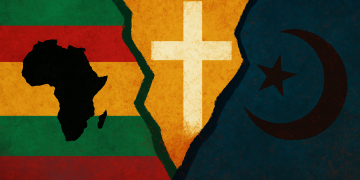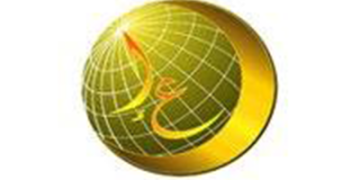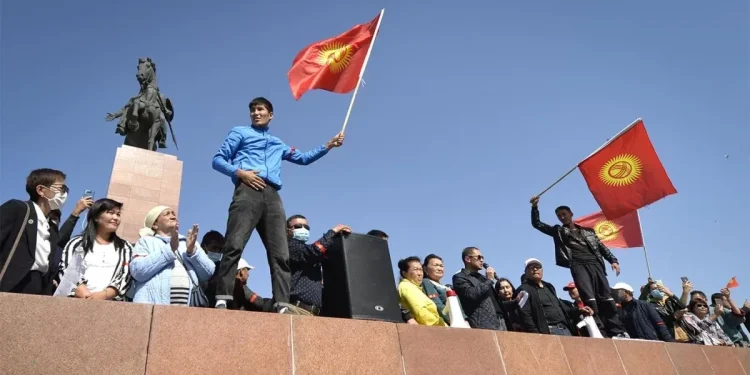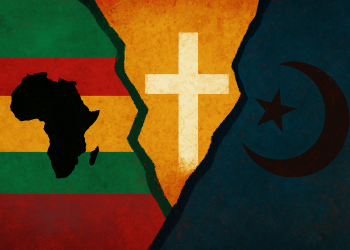The formation of modern Kyrgyz civil society is directly related to Kyrgyzstan’s independence and its subsequent political evolution. During the Soviet era, Moscow’s refusal to grant member states the constitutional right to act independently on certain issues while considering local differences and its opposition to the local population’s limited ability to practice their language, culture, and religion led to protests occasionally. However, it has become normal for such protests to be suppressed by force in a short time. The “perestroika” [1] announced in April 1985 marked the beginning of a revival and claims of independence from Moscow by union states. The three Baltic states took the leading role during this period—Latvia, Lithuania, and Estonia—which were more independent and developed compared to Central Asian countries, and many anti-communist informal groups emerged in these countries. Many organizations, leading the Latvian Popular Front (Latvijas Tautas Fronte, LTF), the Popular Front of Estonia (Eestimaa Rahvarinne), and the Lithuanian “Sąjūdis-Movement” (Lietuvos Sąjūdis) movements, began to rebel against the communist regime explicitly.
This wave, as in the rest of the Soviet Union, also influenced Kyrgyz youth. The main trigger for the collective protest initiative in Kyrgyzstan, starting among the younger segment of society, was the housing issue, which emerged as early as the 1920s and was known to the government but overlooked. Despite the migration of Kyrgyz youth from rural areas to cities starting in the 1920s, no solutions were proposed for their housing problems, and they were subjected to exclusion. Young people requesting land to build homes were ignored due to the discriminatory policies of local officials. Meanwhile, housing was immediately allocated to people from other nationalities, particularly those from Russia to Soviet Kyrgyzstan, forcing Kyrgyz youth to live in makeshift housing rented out by these newcomers. This issue reached its peak when Kyrgyz youth, treated as second-class citizens in their homeland, seized agricultural lands around the capital and began constructing homes there between April and June of 1989. The communist government’s repression to stop this illegal act led to the transformation of a social issue into a struggle for independence. In June 1990, the youth, aiming to resist state repression through collective action, united around the “Ashar” civil and political movement, marking the first civil society action in modern Kyrgyzstan’s history (Чоротегин, 2015).
The leadership of Kyrgyzstan’s social awakening was taken on by intellectuals such as writers Chinghiz Aitmatov, Tugalbay Sydykbekov, Kazat Akmatov, and Kenesh Jusupov, along with directors like Tolomush Okeyev, Bolot Shamshiev, and Dooronbek Sadyrbayev, who actively supported the movement. The fact that the first meeting place of the Kyrgyzstan Society of Young Historians, announced on June 3, 1989, was the conference hall of the Kyrgyzstan Writers’ Union and that Chinghiz Aitmatov, who was in Moscow at the time, provided indirect support, further proves our argument (Чоротегин, 2015).
The advancement of Kyrgyzstan’s civil society organization to a higher level occurred with the establishment of the Kyrgyzstan Democratic Movement, encompassing all informal organizations[2]. The Kyrgyzstan Democratic Movement, which played a significant role in laying the foundations of an independent Kyrgyzstan in 1990-91, has since been the starting point for numerous political parties that have been influential in politics to this day. The political and oppositionist character it assumed at its inception can still be observed in contemporary civil society organizations (Курманов, 2004, pp. 8-9).
Imported vs. Domestic Debate
As is well known, Kyrgyzstan gained its independence following the dissolution of the Soviet Union, and the civil initiative-based organizations, unions, and movements in the country were established to resist the communist regime, in which Russians held a superior position. Western countries, particularly the United States, which applauded the eventual downfall of the USSR and socialism in the global ideological competition, quickly launched efforts to teach democracy and market economy principles to the post-Soviet states, which had just gained independence.
Starting in 1993, civil society organizations in Kyrgyzstan that were entirely funded by Western countries began to emerge, thanks to the financial and technical support provided to institutions that adopted democratic values and aimed to operate in this field. The biggest grant providers were organizations like the U.S. Agency for International Development (USAID), Counterpart Consortium, the American Bar Association, and the National Democratic Institute. Between 1996 and 1999, financial support for civil society initiatives in Kyrgyzstan reached its peak (Жусупов, 2008, p. 42). Thanks to financial support, we can see that a significant number of civil society organizations officially began operations during this period. In the following years, the growth trend in these organizations continued steadily. According to 1994 data, Kyrgyzstan had 14 political parties, 10 civil movements, and over 800 civil society organizations officially operating. A general characteristic of civil society organizations in the early years of independence is that the majority were established for humanitarian aid purposes (Бектанова, 2016). According to data from the decade after 2006, these numbers increased dramatically, reaching 8,000. This figure was the highest among Central Asian countries at the time (Jailobaeva, 2013).
However, the increase in numbers cannot be attributed solely to the technical and financial support provided by external sources. The post-Soviet government’s support for democratic changes in society, along with the adoption and implementation of laws on “Civil Society Organizations” and “Freedom of Religion and Religious Organizations” in the early months of independence, also removed obstacles to the development of the civil society sector (Бектанова, 2016). The legal regulations regarding the official licensing and operations of civil society organizations continue to be updated and developed according to the needs of the time. Thanks to all these supports, civil society organizations, particularly those addressing social issues, education, and human rights, have come to be informally referred to as the “third sector” (Жусупов, 2008, p. 43).
As of November 22, 2011, the total number of non-profit organizations in the country was 16,262, consisting of 4,623 associations, 3199 foundations, 5659 organizations, 690 unions, and 2,091 other types of entities (Фирдоус, 2015, p. 122). According to the most recent data from 2023, the total number has reached 29,130. Of these, 10,313 are associations, 7504 are foundations, and 11,313 fall into other categories (24.kg, 2023).
Challenges Faced by Civil Society Organizations
Financial Resources
From 1990 to the present, Kyrgyzstan’s civil society has experienced a fluctuating trajectory, acquiring specific characteristics unique to Kyrgyz society as a result of various events. Civil society in Kyrgyzstan, both in the past and today, has not been free from challenges. Financial issues are a primary issue, particularly for organizations established with international funding. On the other hand, due to the country’s still developing banking sector, it isn’t easy to fully and transparently manage the funds that civil society organizations receive from external sources. According to 2005 data, 64% of the financial resources for civil society organizations were derived from grants provided by international organizations (Jailobaeva, 2013).
Table 1. Distribution of Income Sources for Civil Society in Kyrgyzstan
| Income Source | Percentage in Total Resources |
| International Grants | %64 |
| Personal Donations | %9 |
| Working Capital | %8 |
| Membership Fees | %8 |
| Local Grants | %4 |
| Business Donations | %3 |
| State Support/Grants | %2 |
| Other | %2 |
Source: Jailobaeva, 2013
As we can see from Table 1, personal donations account for only 9%, local grants for 4%, and business donations for just 3%; in other words, if external funding, which constitutes two-thirds of the resources, is cut off, the likelihood of a civil society organization continuing its operations is very low. Unfortunately, no more recent data than the 2005 figures on this matter is available.
The weak local support for civil society organizations can be attributed primarily to the conditions imposed by the developing economy. The second reason may stem from certain Western-backed civil society organizations highlighting issues that conflict with Kyrgyz society’s religious and social values, such as homosexuality, and representing Kyrgyzstan negatively on the international stage. Another adverse effect of civil society organizations relying on foreign funding is that the foreign institutions providing financial support may use these organizations as a tool for pressure and lobbying against the local government. A prime example of this can be seen in the crisis between the U.S. and Kyrgyzstan. During the power vacuum that occurred in Kyrgyzstan in 2010, an ethnic conflict arose, leading to the imprisonment of an individual sentenced to life in prison for “inciting ethnic hatred,” “organizing mass disorder,” and “killing a state official (police).” In 2015, this individual was awarded a human rights award by the U.S. Department of State (Мотинов, 2015).
The Kyrgyz government unilaterally terminated the agreement made with the E.U. for cooperation on July 21, 2015, citing that the U.S. action threatened Kyrgyz society’s unity (Правительство Кыргызской Республики, 2015). The U.S. Embassy in Bishkek stated in an official announcement on July 23, 2015, that “the U.S. has provided a total of $2 billion in assistance to support Kyrgyzstan’s democratic transition since 1993, and this decision will lead to the cessation of ongoing projects in the country” (Посольство США в Кыргызской Республике, 2015). In a subsequent announcement on the matter, they further listed all the projects supported, particularly those aimed at strengthening state institutions, institutionalizing civil society, and ensuring the transparency of government decisions (Посольство США в Кыргызской Республике, 2015).
Russian Influence
Another issue arises from the differences in civil society policies and the levels of freedoms granted by neighboring and strategically allied countries to Kyrgyzstan. Despite the image of representative democracy projected to the outside world after gaining independence following the collapse of the Soviet Union, the Central Asian countries have largely continued with authoritarian governance. The use of force by these countries against civil society organizations, particularly those with opposing views, and the resort to legal barriers in this regard have indirectly influenced state-civil society relations in Kyrgyzstan as well.
Notably, Russia, which is known for its strict approach to this matter, amended its federal law on “Non-Profit Organizations” in 2012. This legislation requires civil society organizations that receive any financial support from abroad (whether from state or private entities) and participate in political activities (even indirectly) to register as “foreign agents” (Кашин, 2012, p. 17). To a large extent, the law proposed by three members of the Kyrgyz Parliament in 2014 was inspired by the Russian law dated May 26, 2014 (International Center for Not-For-Profit Law [ICNL], 2014). Despite opposition from local civil society representatives and international organizations such as Human Rights Watch, Freedom House, and the United Nations human rights subunits, the bill passed its first and second readings in the Kyrgyz Republic Ministry of Justice (Human Rights Watch, 2015; Freedom House Kyrgyzstan, 2015). However, growing protests, signature campaigns, and international pressure ultimately led to 65 out of 111 members [3] voting against the bill in the final vote held in 2016, ending the initiative (Aзаттык Үналгысы, 2015). Ten years later, Member of Parliament Nadira Narmatova revived the previously rejected bill, successfully bringing it back into discussion, and the law officially came into effect in April 2024. In order to soften the reactions from the public, only the term was changed, and “foreign agent” was replaced with “foreign representative” (OOH, 2024; The Diplomat, 2024).
As a result, we can see that Kyrgyz civil society has a modern history of 35 years, and ups and downs have naturally marked the process. It is nearly impossible to address the country’s development journey in the civil society sector without separating it from the concepts of democracy, freedom, and independence. Despite numerous changes in power and the influences of global players, it maintains the characteristics it acquired at its inception. This area has not yet been comprehensively and systematically researched, so it is quite challenging to paint a broad picture.
[1] Restructuring.
[2] All these organizations were informal because there was no legal legislation yet, and it was an uprising against the regime.
[3] The Jogorku Kenesh (Parliament) of the Kyrgyz Republic is a unicameral institution with 120 deputies.
*Cover: Vladimir Voronin, 2020.
References
Чоротегин, T. (2015). Кыргызстандагы демократиячыл күрөштүн карлыгачы – КДКга чейрек кылым. Retrieved from https://www.azattyk.org/a/kyrgyzstan_democratic_movement_25th_anniversary_blog/27029594.html
Курманов, З. (2004). О Проблемах Партогенеза В Кыргызстане. Центральная Азия и Кавказ, 5(35), 14.
Жусупов, Б. (2008). Проблемы Политизации Некоммерческих Неправительственных Организаций В Кыргызстане. Вестник КРСУ, 8(3), 42 – 45.
Бектанова, А. (2016). Генезис гражданского сектора в Кыргызстане. Проблемы Современной Науки И Образования, 3(45), 97-101.
Jailobaeva, K. (2013). NGOs in Kyrgyzstan. Social research centre. American University of Central Asia. Retrieved from http://src.auca.kg/images/stories/files/kanykei2_eng.Pdf
Фирдоус, Д. (2015). Гражданское Общество В Контексте: Взгляд На Примере Кыргызстана. Центральная Азия и Кавказ, 18(2), 103 – 119.
Мотинов, Д. (2015). Денонсация соглашения с США: реакция соцсетей. Retrieved from https://kloop.kg/blog/2015/07/22/denonsatsiya-soglasheniya-s-ssha-reaktsiya-sotssetej/
Правительство Кыргызской Республики. (July 21, 2015). Постановление Правительства Кыргызской Республики «О денонсации Соглашения между Правительством Кыргызской Республики и Правительством Соединенных Штатов Америки относительно сотрудничества по облегчению оказания содействия от 19 мая 1993 года, подписанного в г.Вашингтон». Retrieved from http://www.gov.kg/?p=59956&lang=ru Правительство Кыргызской Республики
Посольство США в Кыргызской Республике. (2015). Кыргызская Республика: Результаты поддержки, оказанной США. Ответ на денонсацию двустороннего соглашения от 1993 года. Retrieved from http://clc.to/G9mJDw
Посольство США в Кыргызской Республике. (2015a). Кыргызская Республика: Результаты поддержки, оказанной США. Ответ на денонсацию двустороннего соглашения от 1993 года. Retrieved from https://kg.usembassy.gov/ru/denunciation-bilateral-agreement- of-1993-ru/
Азаттык Үналгысы. (2016). “Тыңчы” мыйзамын парламент колдогон жок. Retrieved from https://www.azattyk.org/a/kyrgyzstan_ngo_parlaiment_law/27730911.html
Freedom House Kyrgyzstan. (2015). Заявление Фридом Хаус O Законопроекте «Иностранных Агентов» В Кыргызстане. Retrieved from http://freedomhouse.kg/utverzhdenie-zakonoproekta/
Human Rights Watch. (2015). Kyrgyzstan: ‘Foreign agents’ bill violates rights. Retrieved from https://www.hrw.org/news/2015/05/21/kyrgyzstan-foreign-agents-bill-violates-rights
Internatıonal Center For Not-For-Profıt Law (ICNL). (2014). Анализ проекта Закона Кыргызской Республики «О внесении дополнений и изменений в некоторые законодательные акты Кыргызской Республики» (проекта закона «об иностранных агентах»). Retrieved from http://www.icnl.org/research/library/files/Kyrgyzstan/analysisfa.pdf
Jailobaeva, K. (2013). NGOs in Kyrgyzstan. Social research centre. American University of Central Asia. Retrieved from http://src.auca.kg/images/stories/files/kanykei2_eng.pdf
Кашин, А. А. (2012). Статус иностранного агента. Бухгалтерский учет в бюджетных и некоммерческих организациях, (21), 17 – 22.
24.kg. (June 14, 2023). Цифра дня. 29 тысяч 130 некоммерческих организаций работают в Кыргызстане. Retrieved from https://24.kg/obschestvo/270279_tsifra_dnya29tyisyach_130_nekommercheskih_organizatsiy_rabotayut_vkyirgyizstane/
The Diplomat. (April 15, 2024). Kyrgyzstan Adopts Law Targeting Foreign-Funded NGOs. Retrieved from https://thediplomat.com/2024/04/kyrgyzstan-adopts-law-targeting-foreign-funded-ngos/
ООН. (April 5, 2024). ООН: новый закон Кыргызстана об «иностранных представителях» может подорвать работу НПО. Retrieved from https://news.un.org/ru/story/2024/04/1451056












































